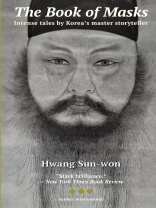The long life and career of Hwang Sun-won (1915-2000) spanned the whole trajectory of modern Korean history – Japanese domination, WWII, ideological strife, the Korean War and harsh division of the country, industrialization, military dictatorships and the protests against them. These events are reflected subtly in his stories, always emphasizing the resilience of the Korean people.
Table des matières
Acclaim for The Book of Masks
Introduction by Martin Holman
Stories
- Masks
- Conversation in June about Mothers
- A Numerical Enigma
- Winter Forsythias
- Folding the Umbrella
- For Dear Life
- Blood
- The Night He Came Late
- In a Small Island Village
- Shadows of a Sound
- The Weighted Tumbler
- Nature
- The Curtain Fell, but Then….
- Places of Death
- A Tree, a Rock, and….
A propos de l’auteur
HWANG SUN-WON (1915-2000) was born in what is now North Korea before WWII, when the whole country was under heavy Japanese domination. Like other young Korean intellectuals, he was sent to Tokyo in the 1930s for higher education and literary pursuits, only returning North after War was declared. He had to hide his Korean writings during the later stages of the War until Japanese colonial power was ended in 1945. From the literary experimentation of the 1920s and 1930s by Korean writers in Tokyo, the short story developed as the premier literary for modern Korean writing, and from the 1930s onward Hwang Sun-won held his place as master of the form. His collection The Book of Masks, published when he was over sixty, marked a new departure and astonished the critics with its intensity and psychological depth, and these are the stories presented by Readers International to introduce this important writer to English-language readers in Europe, Canada and the USA.












